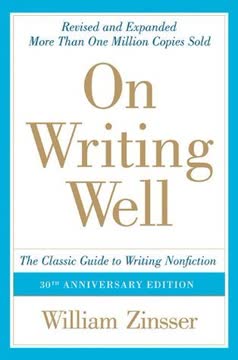つの重要なポイント
1. 明確さ、簡潔さ、短さを重視する
アメリカの文章の病は冗長さである。
明確さが王道。 良い文章は明確で、簡潔で、要点を押さえている。不要な言葉や大げさな表現、複雑な文を避け、できるだけシンプルにアイデアを伝えることに集中しよう。動詞は能動的に、名詞は具体的に、文は短くしてメッセージを効果的に伝える。
簡潔さは力強い。 文章を本質的な要素に絞り込む。専門用語、陳腐な表現、不要な修飾語を排除し、正確で感情に訴える言葉を選ぶ。良い文章とは、大きな言葉や複雑な構造を使うことではなく、アイデアを明確かつ効率的に伝えることだ。
短さは美徳。 明確な目的を持たない言葉、文、段落を容赦なく削除する。情報が価値を追加するか、より簡単な方法で表現できるか、少ない言葉で伝えられるかを常に自問する。簡潔であることで、読者の時間を尊重し、文章をより魅力的で影響力のあるものにする。
2. 独自の文体とスタイルを育む
作家としてのあなたの商品は、何を書いているかに関わらず、あなた自身である。そして、あなたの商品はあなた自身だ。
本物の声を見つける。 文章はあなたの個性と独自の視点を反映すべきだ。他の作家を模倣したり、自然に感じられないスタイルを採用したりしないようにしよう。代わりに、本当に自分らしい声を育むことに集中する。この本物らしさが、文章をより魅力的で記憶に残るものにする。
スタイルを育てる。 明確さと簡潔さが重要である一方で、独自のスタイルを発展させることを恐れないでほしい。これには以下が含まれるかもしれない:
- 独特のフレーズや言い回し
- 文のリズムや抑揚
- 段落や記事の独自の構造
- 一貫したトーン(例:ユーモラス、権威的、会話的)
広く読み、実験する。 声とスタイルを発展させるために、さまざまな作家やジャンルを読む。何が共鳴するか、なぜそうなのかに注意を払う。そして、自分の文章でさまざまな技法を試してみる。時間が経つにつれて、何が自分にとって最適で、本物の声に最も合っているかがわかるだろう。
3. 書き直しと編集の技術を習得する
書き直しは良い文章を書く本質であり、勝敗が決まる場所である。
初稿は完璧ではない。 初めての文章が粗くて不完全であることを受け入れよう。本当の作業は書き直しの過程で始まる。ここでアイデアを洗練し、言葉を改善し、文章を磨く。
精密に編集する。 書き直しの際には以下に焦点を当てる:
- 主なポイントを明確にする
- 論理の流れと論点の改善
- 冗長性と不要な言葉の排除
- 動詞の強化と言葉の選択の洗練
- リズムを良くするための文構造の多様化
声に出して読み、フィードバックを求める。 文章を声に出して読むことで、不自然な表現、繰り返し、リズムの問題を発見できる。また、信頼できる読者からのフィードバックを求めることをためらわないでほしい。新しい目で見ることで、慣れすぎて見逃していた問題を発見できることが多い。
4. 最大の効果を得るために文章を整理する
ノンフィクションの文章で最も教えられていない、過小評価されているスキルの一つは、長い記事をどう整理するか、つまりジグソーパズルをどう組み立てるかである。
書く前に計画する。 文章に取りかかる前に、主なポイントをアウトライン化し、最も効果的な構造を決定する時間を取る。これには以下が含まれるかもしれない:
- 物語的な作品のための年代順の順序
- 分析記事のための問題解決構造
- 複雑なトピックのためのテーマ別の整理
強力なリードとエンディングを使う。 読者の注意を引き、今後の内容のロードマップを提供する魅力的なオープニングを作成する。同様に、主なポイントを強調し、持続的な印象を残す強力な結論で文章を締めくくる。
論理的な流れを作る。 アイデアが自然に次から次へと進むようにする。移行フレーズや文を使って、読者を論点や物語の中で導く。各段落は前の段落に基づき、次の段落にスムーズに繋がるようにする。
5. インタビューと人物描写の技術を磨く
人々に話をさせる。彼らの生活で最も興味深い、鮮やかなことについて答えを引き出す質問を学ぶ。
徹底的に準備する。 インタビューの前に、対象者について調査し、思慮深い質問のリストを準備する。しかし、会話が興味深い方向に進んだ場合には、スクリプトから逸れる準備もしておく。
積極的に聞く。 対象者の話に注意深く耳を傾け、フォローアップの質問をする機会を探す。多くの場合、最も興味深い詳細はこうした自発的な瞬間から生まれる。
本質を捉える。 人物について書く際には、その個性、仕草、独特の声を伝えるよう努める。具体的な詳細や直接の引用を使って、対象者をページ上で生き生きと描写する。
6. 魅力的なノンフィクションの物語を作る
旅行から帰ってきた旅行者ほどすぐに退屈になる人はいない。彼は旅行をとても楽しんだので、すべてを話したいと思っているが、私たちが聞きたいのは「すべて」ではない。私たちが聞きたいのは「一部」だけだ。
物語に焦点を当てる。 ノンフィクションでも、物語の技法を使うことで文章をより魅力的にすることができる。トピックの中にある物語を探し、キャラクター、対立、解決などの要素を使って文章を構成する。
選択的である。 集めたすべての詳細や事実を含めようとしない。主なポイントをサポートする、または物語を進める最も関連性があり、興味深い情報を選ぶ。
見せる、語らない。 生き生きとした描写や具体的な例を使ってポイントを説明する。単に事実を述べるのではなく、逸話、感覚的な詳細、具体的なイメージを通じてそれらを生き生きとさせる。
7. 書く過程で喜びと自信を見つける
書いている最中に何かが面白いと感じたら、自分を楽しませるためにそれを入れる。自分が面白いと思うなら、他の人も面白いと感じるだろうし、それは良い一日の仕事だと思う。
まず自分のために書く。 書く過程を楽しみ、その熱意を表現する。自分が興味を持っているテーマであれば、読者も興味を持つ可能性が高い。
独自の視点を大切にする。 自分の個人的な経験や視点が文章を価値あるものにすることを忘れないでほしい。自分の個性を文章に注入することを恐れないでほしい。
恐怖と自己疑念を克服する。 書くことは恐ろしいことかもしれないが、恐怖に麻痺させられないようにしよう。準備ができていなくても書き始める。書く行為そのものがしばしば自信と明確さを生む。
8. 家族の歴史や回想録を誠実かつ共感を持って書く
回想録を使って古い不満を晴らしたり、古い恨みを解消したりしないでください。その怒りは他の場所で解消してください。
真実でありながら優しく。 家族や個人的な歴史について書く際には、誠実でありながら、文章を武器として使わないようにする。理解と共感に焦点を当て、非難や恨みを避ける。
声と記憶を保存する。 家族のメンバーの独特の声や視点を捉える。具体的な逸話、言い回し、詳細を含めて、家族の歴史を生き生きとさせる。
個人的な物語を文脈化する。 家族の経験をその時代の広範な歴史的、文化的文脈に置く。これにより、物語に深みと関連性が加わる。
最終更新日:
FAQ
What's On Writing Well about?
- Focus on Nonfiction: On Writing Well by William Zinsser is a guide dedicated to the craft of writing nonfiction, emphasizing clarity and simplicity.
- Practical Advice: It offers practical tips on style, audience awareness, and word usage, drawing from Zinsser's experiences as a writer and teacher.
- Encouragement for Writers: The book encourages writers to find their unique voice and write about what they know and care about, rooted in personal experience and authenticity.
Why should I read On Writing Well?
- Timeless Principles: The book provides timeless principles applicable to all forms of nonfiction writing, valuable for both novice and experienced writers.
- Improvement in Writing Skills: Readers can significantly improve their writing skills by following Zinsser’s advice on clarity, simplicity, and rewriting.
- Inspiration and Motivation: Zinsser’s engaging style and personal anecdotes inspire readers to embrace their writing journey and develop their skills over time.
What are the key takeaways of On Writing Well?
- Simplicity is Key: Zinsser stresses the importance of stripping sentences to their cleanest components to enhance clarity.
- Rewriting is Essential: He emphasizes that rewriting is crucial for refining work and should be viewed as an opportunity rather than a chore.
- Know Your Audience: Understanding your audience is vital, but Zinsser advises writing primarily for oneself to naturally resonate with like-minded readers.
How does William Zinsser define good writing?
- Clear and Concise: Good writing is "clear thinking made visible," reflecting clarity in thought.
- Engaging and Human: It should have humanity and warmth, making it relatable to readers, with the writer’s personality shining through.
- Well-Structured: Good writing is well-structured, with a logical flow that maintains reader engagement.
What specific methods does Zinsser recommend for improving writing?
- Active Voice Usage: Use active verbs to create stronger, more engaging sentences, avoiding passive constructions when possible.
- Clarity and Precision: Examine every word to ensure it serves a purpose, eliminating clutter to enhance writing quality.
- Short Paragraphs: Keep paragraphs short to make writing visually appealing and easier to read, adding "air" around the text.
What role does revision play in On Writing Well?
- Crucial for Quality: Revision is essential for producing quality writing, allowing writers to refine thoughts and improve clarity.
- Multiple Drafts: Zinsser encourages producing multiple drafts, viewing the first draft as just the starting point.
- Feedback and Editing: Seeking feedback and being open to editing can lead to significant improvements in the final product.
How does Zinsser suggest handling the writing process?
- Establish a Routine: Treat writing as a job requiring discipline, with a daily writing schedule to build confidence and skill.
- Embrace Rewriting: View rewriting as a positive opportunity for improvement, with every writer being a rewriter.
- Stay True to Yourself: Be authentic and write in your own voice, reflecting your personality and experiences.
What are some common pitfalls in writing that Zinsser warns against?
- Cluttered Language: Avoid unnecessary words, circular constructions, and meaningless jargon that detract from the message.
- Overuse of Adverbs and Adjectives: Most adverbs are unnecessary; strive for strong verbs and nouns that convey meaning without embellishment.
- Fear of Writing: Overcome the fear of writing by trusting your material and building confidence in your abilities.
How does Zinsser suggest writers find their voice?
- Read Widely: Exposure to different styles and voices through reading can help writers discover their own voice.
- Write Regularly: Consistent practice helps develop a unique voice over time, with writing being a skill honed by doing.
- Embrace Personal Experiences: Drawing from personal experiences and emotions adds authenticity and helps shape a writer's voice.
What role does the audience play in writing, according to Zinsser?
- Write for Yourself: Primarily write for yourself, as authenticity will resonate with readers who share similar interests.
- Understand Reader Expectations: Balance personal expression with reader engagement by considering what might interest readers.
- Avoid Overthinking the Audience: Don’t guess what the audience wants, as this can stifle creativity; genuine writing attracts the right audience.
What are some memorable quotes from On Writing Well and what do they mean?
- “Writing is hard work.”: Emphasizes that writing requires dedication and effort, dispelling the myth of effortless good writing.
- “Clutter is the disease of American writing.”: Highlights the prevalence of unnecessary complexity, advocating for simplicity and clarity.
- “Rewriting is the essence of writing well.”: Underscores the importance of revision in crafting quality writing, encouraging writers to embrace it.
How can I apply Zinsser’s principles to my own writing?
- Practice Regularly: Develop skills by writing consistently, as learning to write comes from the act of writing itself.
- Revise Ruthlessly: Be willing to cut unnecessary words and refine sentences, pruning clutter ruthlessly.
- Seek Feedback: Share writing with others for perspective and constructive criticism, helping identify areas for improvement.
レビュー
本書『On Writing Well』は、ノンフィクションの執筆に関する明確で実践的なアドバイスが多くの読者から高く評価されている。読者は、シンプルさ、明快さ、そして推敲の重要性を強調するZinsserのアプローチを高く評価している。彼の会話調の語り口が魅力的であり、例示が役立つと感じる人が多い。一方で、時代遅れの参考文献や時折見られる包括性の欠如を批判する声もある。いくつかの章は他の章よりも有用とされるが、多くの読者は特にノンフィクション初心者にとって必須のガイドとして本書を推奨している。しかし、一部のレビュアーは本書を繰り返しが多いと感じたり、Zinsserの規範的なアプローチに同意しないこともある。
Similar Books











